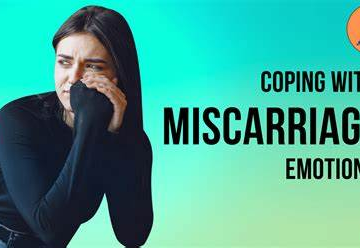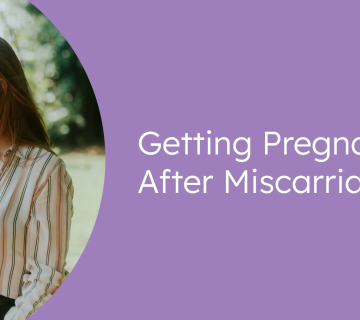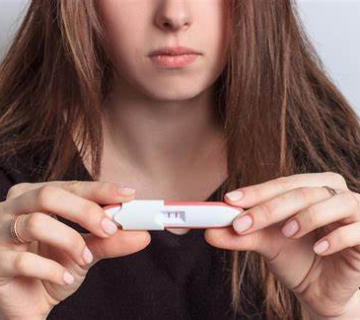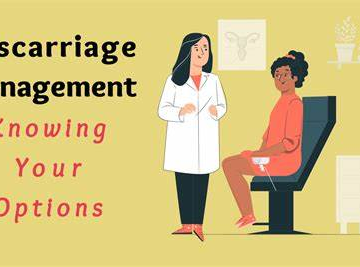Can You Still Get Pregnancy Symptoms After a Miscarriage?
Miscarriage can be an emotionally and physically overwhelming experience. Along with a wide range of emotions—sadness, fear, confusion, and even guilt—you might still feel some physical pregnancy symptoms afterward. Many people wonder how it is possible to have symptoms like nausea, breast tenderness, or fatigue even after their doctor confirms a miscarriage. This question often arises from conflicting signals in the body and mind, leaving individuals uncertain about what’s normal and what needs medical attention.
In this comprehensive blog post, we’ll dive deep into why pregnancy symptoms can linger after a miscarriage, how long they typically last, and what signs may indicate a need for follow-up care. We’ll also explore the emotional aspects and offer practical tips on healing—both physically and mentally. By the end of this article, you’ll have a solid understanding of the post-miscarriage journey and how to navigate it with greater confidence and peace of mind.
Understanding Miscarriage and Its Aftermath
Before discussing why pregnancy symptoms might linger, it’s important to understand what a miscarriage is and the physical process your body goes through.
What is a Miscarriage?
- Definition: A miscarriage, also known as spontaneous abortion, is the loss of a pregnancy before the 20th week. Most miscarriages happen in the first trimester.
- Frequency: According to the American College of Obstetricians and Gynecologists (ACOG), anywhere from 10% to 25% of all clinically recognized pregnancies end in miscarriage, though the exact percentage can be higher because many losses occur before a person realizes they are pregnant.
- Common Causes: Chromosomal abnormalities are the most common cause. Other contributing factors can include hormonal imbalances, certain infections, lifestyle factors (like smoking or heavy alcohol use), maternal health issues (like uncontrolled diabetes or thyroid disorders), and advanced maternal age.
What Happens in the Body During a Miscarriage?
When a miscarriage occurs, your body begins a process of shedding pregnancy tissue. This can involve:
- Hormonal Fluctuations: The pregnancy hormone human chorionic gonadotropin (hCG) starts declining.
- Uterine Contractions: The uterus contracts to expel the tissue, often leading to cramping and bleeding.
- Physical Symptoms: Symptoms can include heavy or prolonged bleeding, passing of clots or tissue, and moderate to severe cramping.
Emotional and Mental Impact
- Grief: Many people experience a deep sense of loss, sadness, or guilt, even when the miscarriage is not due to anything under their control.
- Anxiety About Future Pregnancies: Worries about trying to conceive again or fear of experiencing another loss are also common.
- Hormonal Mood Swings: Fluctuating hormones can lead to mood changes, irritability, or emotional ups and downs.
Key takeaway: A miscarriage is not just a physical loss; it affects every aspect of well-being. Recognizing this helps you understand that lingering pregnancy symptoms—both physical and emotional—are part of a complex healing process.
Why Pregnancy Symptoms May Still Occur After a Miscarriage
If a miscarriage has been confirmed, you might logically expect all pregnancy symptoms to disappear right away. But the human body doesn’t flip a switch overnight. Here’s why those symptoms can hang around longer than expected:
The Role of hCG (Human Chorionic Gonadotropin)
- What is hCG? Often called the “pregnancy hormone,” hCG is produced by the placenta. It signals the body to maintain the pregnancy.
- Slow Decline: After a miscarriage, hCG levels do not instantly drop to zero. It can take days or even weeks for levels to decrease enough that a pregnancy test becomes negative.
- Lingering Effects: During this gradual decline, your body can still exhibit symptoms like nausea, fatigue, and breast tenderness.
Hormonal Imbalances
- Estrogen and Progesterone: These hormones can also remain elevated for a short period post-miscarriage. They influence your body’s reproductive functions and can cause pregnancy-like symptoms.
- Thyroid Involvement: Some people have underlying thyroid imbalances that can mimic pregnancy symptoms, such as fatigue and weight changes. A miscarriage can sometimes exacerbate these conditions.
Retained Tissue
- What is Retained Tissue? Sometimes, not all pregnancy tissue is expelled from the uterus. Even a tiny amount can continue to produce hormones.
- Symptoms: If you have retained tissue, you might experience ongoing bleeding or spotting, prolonged abdominal cramping, and possibly persistent pregnancy symptoms.
- Medical Check: An ultrasound or blood test is often needed to confirm if any tissue remains. In some cases, a minor procedure (like a dilation and curettage, or D&C) may be required to remove it.
Psychological Factors and “Phantom Symptoms”
- Mind-Body Connection: It’s common to feel deeply connected to the idea of pregnancy, and emotional stress can manifest as physical symptoms.
- Phantom Symptoms: Like the concept of “phantom kicks” some pregnant people feel even after giving birth, these sensations can arise from heightened awareness of your body or lingering emotional attachment to the pregnancy.
- Anxiety and Stress: Anxiety can lead to physical symptoms like nausea, headaches, or changes in appetite, which can mimic pregnancy symptoms.
Common Post-Miscarriage Symptoms and Their Typical Duration
While each person’s experience is unique, some symptoms are frequently reported in the aftermath of a miscarriage. Below is an overview of common symptoms, how they relate to lingering pregnancy signs, and how long they might last.
| Symptom | Possible Cause | Typical Duration |
|---|---|---|
| Nausea or Morning Sickness | Residual hCG levels or emotional stress | 1-2 weeks post-miscarriage, but can vary |
| Breast Tenderness | Elevated estrogen and progesterone, retained tissue | 1-3 weeks, gradually lessening over time |
| Fatigue | Hormonal imbalances, emotional distress, physical recovery | A few days to a few weeks |
| Spotting or Bleeding | Uterine lining shedding, possible retained tissue | A few days to 2 weeks (longer if incomplete) |
| Cramping or Lower Back Pain | Uterine contractions, hormonal shifts, incomplete miscarriage | 1-2 weeks, but can persist if complications occur |
Note: These timelines are general guidelines. You may recover faster or slower depending on your health, the timing of the miscarriage, and other individual factors. If any symptom persists beyond the typical range—or intensifies—consider seeking medical advice.
When to Seek Medical Attention
While some lingering symptoms are normal, certain signs suggest you need a follow-up with your healthcare provider to ensure there are no complications.
Warning Signs
- Heavy Bleeding or Large Clots: Bleeding that soaks through one or more pads per hour for multiple hours needs immediate medical attention.
- Severe Pain or Cramping: Discomfort that doesn’t lessen with over-the-counter pain relief or rest.
- Fever or Foul-Smelling Discharge: Possible signs of an infection.
- Persistent Pregnancy Symptoms Beyond 2-3 Weeks: Could indicate retained tissue or another health issue.
- Feelings of Extreme Sadness or Anxiety: If emotional distress interferes with your daily life, mental health support is crucial.
Diagnostic Tools
- Ultrasound: Can confirm whether the uterus has expelled all pregnancy tissue.
- Blood Tests (hCG Levels): Repeated tests can track the decline of hCG and confirm complete resolution of pregnancy.
- Pelvic Exam: Your doctor may perform this to check for signs of infection or any physical abnormalities.
Possible Medical Interventions
- Medication: Drugs like misoprostol can help the uterus expel remaining tissue.
- Surgical Procedure (D&C or D&E): Sometimes necessary to remove retained tissue.
- Antibiotics: If there is any sign of infection.
Practical Tip: Keep a “symptom diary.” Note the dates, intensity, and changes in any ongoing symptoms. This helps healthcare providers make a more accurate assessment and provides you with a clearer timeline of events.
Emotional and Psychological Considerations
Just as physical symptoms can linger, emotional healing isn’t immediate either. You may continue to feel the weight of the pregnancy loss even after your body has physically recovered.
Grief and Loss
- Emotional Rollercoaster: It’s normal to cycle through denial, anger, sadness, and acceptance. Each stage can resurface unexpectedly.
- Guilt or Self-Blame: Many people wonder if they did something wrong, even when there is no evidence supporting that thought.
- Coping Strategies: Journaling, talking to a therapist, or joining a support group can be immensely helpful.
Anxiety About Future Pregnancies
- Fear of Another Loss: It’s common to worry about getting pregnant again and experiencing another miscarriage.
- Support from Loved Ones: Sharing these fears with a partner, close friend, or counselor can help alleviate stress.
- Education and Planning: Learning about what might be done differently or how to monitor future pregnancies more closely can offer a sense of control.
Relationship Challenges
- Differences in Grief: Partners sometimes grieve differently. One partner might want to talk frequently, while the other might prefer privacy.
- Communication: Honest, open discussions can prevent misunderstandings and help both parties cope.
Practical Tip: Consider speaking with a mental health professional who specializes in reproductive grief. They can provide tailored advice and coping strategies, ensuring you’re supported throughout your emotional recovery.
The Healing Process: Physical, Emotional, and Beyond
Healing from a miscarriage is not a one-size-fits-all journey. Below are some approaches that address all dimensions of your recovery.
Physical Recovery
-
Rest and Nutrition
- ✔️ Eat balanced meals rich in vitamins and minerals, such as leafy greens, lean proteins, and whole grains.
- ❌ Relying on junk food or skipping meals can slow down recovery.
- ✔️ Stay hydrated.
- ❌ Overexerting yourself physically before your body is ready.
-
Pain Management
- Over-the-Counter Medication: Ibuprofen or acetaminophen can help.
- Heat Therapy: Warm compresses or heating pads can soothe cramps or back pain.
-
Follow-Up Appointments
- ✔️ Complete all recommended ultrasounds or blood tests.
- ❌ Assume everything is fine without verifying normal hCG levels if your doctor advised follow-up.
Emotional Well-Being
-
Support Groups
- Online and in-person communities can offer a space to share your story.
- Listening to other people’s experiences can normalize your feelings.
-
Therapy or Counseling
- A mental health professional can help navigate unresolved grief or anxiety.
- Cognitive Behavioral Therapy (CBT) techniques can help restructure negative thought patterns.
-
Mindful Activities
- Examples: Yoga, meditation, or gentle walks can help calm the mind and body.
- Benefits: Improves mood, reduces stress, and enhances overall well-being.
Spiritual or Holistic Approaches
- Journaling and Reflection: Document your feelings and thoughts.
- Mind-Body Exercises: Practices like Tai Chi or guided imagery can be grounding.
- Art Therapy: Creative outlets such as painting or crafting can help process emotions.
Practical Tip: Give yourself permission to grieve and heal at your own pace. There’s no “right” timetable for recovering from a miscarriage, physically or emotionally.
How Long Do Pregnancy Symptoms Last After a Miscarriage?
Many people want a clear timeline to help them know what’s normal. Although it varies from person to person, here is a general sequence you might expect:
- First Few Days: Heavy bleeding and cramping are common, as your uterus expels tissue. Nausea might still be present if hCG levels remain high.
- 1-2 Weeks: Bleeding typically lessens, and some pregnancy symptoms like breast tenderness begin to fade.
- 2-3 Weeks: hCG levels often return close to pre-pregnancy levels, and most pregnancy symptoms should resolve.
- After 3 Weeks: If you continue to experience strong pregnancy symptoms or your pregnancy test remains positive, consult your healthcare provider.
Factors Affecting Timeline
- Gestational Age: The further along you were, the longer it may take for hormones to stabilize.
- Underlying Health Conditions: Thyroid problems or PCOS can affect hormone regulation.
- Type of Miscarriage Management: A naturally completed miscarriage vs. a D&C procedure can influence how quickly symptoms subside.
Could It Be a New Pregnancy?
Sometimes, lingering or returning pregnancy symptoms can signal a new pregnancy rather than just residual hormones from a miscarriage.
Possibility of Early Ovulation
- Ovulation Timing: You can ovulate as soon as 2 weeks after a miscarriage, depending on your cycle.
- Risk of Conception: If you have unprotected sex, there is a possibility of becoming pregnant again before your next period.
- Testing: Only an hCG blood test or ultrasound can confirm whether a new pregnancy has begun.
How to Differentiate
- Serial hCG Testing: If levels drop to near zero and then begin rising again, that suggests a new pregnancy.
- Ultrasound Confirmation: An ultrasound can detect new embryonic growth.
- Symptoms Alone Are Not Reliable: Nausea, fatigue, or breast tenderness can happen due to residual hormones or emotional stress.
Latest Research and Perspectives
New studies and updated guidelines shed light on the complexity of miscarriage and post-miscarriage healing.
-
Early Pregnancy Loss Guidelines
- Recent guidelines suggest individualized care plans for physical and emotional support.
- A 2022 study in a reputable medical journal emphasized the need for thorough follow-up after miscarriage to check for retained tissue and monitor mental health.
-
Hormonal Support Therapies
- Some research explores whether progesterone supplements might reduce certain pregnancy-related complications in early pregnancy.
- While evidence is mixed, future research could clarify if hormonal support impacts miscarriage recovery or subsequent pregnancies.
-
Mental Health Screening
- A growing emphasis on perinatal mental health suggests that miscarriage survivors should be offered routine mental health screenings.
- Cognitive-behavioral interventions have shown promise in reducing anxiety and depression symptoms post-miscarriage.
Key takeaway: Science is increasingly recognizing the need for a holistic approach, combining medical, emotional, and psychological care to assist people after miscarriage. If you find that your care provider isn’t offering such comprehensive support, consider asking about available resources or seeking a second opinion.
Practical Tips for Day-to-Day Well-Being
While you wait for physical symptoms to resolve, there are steps you can take to improve your daily comfort and emotional well-being.
Nutrition and Supplements
- Focus on Iron: Blood loss can lower iron levels. Foods like spinach, beans, and lean red meat can help.
- Calcium and Vitamin D: Support bone health and overall recovery.
- Discuss Supplements with Your Doctor: Prenatal vitamins can sometimes support hormonal balance and prepare your body for a potential future pregnancy.
Exercise and Movement
- Gentle Activities: Light walks, stretching, or gentle yoga can aid circulation and reduce stress.
- Avoid High-Intensity Workouts Immediately: Your body may not be ready for strenuous exercises like running or heavy weightlifting.
Sleep Hygiene
- Aim for 7-9 Hours: Proper rest speeds up physical and emotional recovery.
- Establish a Routine: Go to bed at the same time every night and avoid screens 30 minutes before bedtime.
Social Support
- Talk to Loved Ones: Sharing your feelings with friends or family members you trust can help lessen isolation.
- Support Groups: Many online communities exist for individuals who have experienced miscarriage. Reading others’ stories can be reassuring.
Addressing Frequently Asked Questions (FAQ)
“Is it normal to have a positive pregnancy test weeks after a miscarriage?”
- Answer: Yes, it can take several weeks for hCG levels to drop below the detectable range. If it remains positive after 3-4 weeks, consult your doctor to rule out retained tissue or a new pregnancy.
“When can I start trying to conceive again?”
- Answer: Many doctors advise waiting until after your first normal period before trying to conceive again. This helps date a future pregnancy more accurately and gives your body time to recover. However, recommendations can differ based on individual circumstances.
“I still feel extremely fatigued. When will this go away?”
- Answer: Fatigue is a common lingering symptom. It may last a couple of weeks or slightly longer, especially if you’re also dealing with emotional stress. Focus on rest, hydration, and balanced nutrition. If extreme fatigue continues beyond a few weeks, consult a healthcare provider for a checkup.
“Could my lingering symptoms be due to incomplete miscarriage?”
- Answer: Yes, retained tissue is one possibility. If you have ongoing symptoms like persistent bleeding, pain, and pregnancy-like signs, an ultrasound can confirm if all tissue has been expelled. Talk to your doctor for a proper evaluation.
“How do I cope with sadness and guilt that I can’t seem to shake?”
- Answer: Emotional recovery takes time, and it’s completely normal to grieve. Consider seeking professional counseling or a support group specialized in pregnancy loss. Self-care activities like journaling or mindfulness practices can also help.
Planning for Future Pregnancies
Many individuals who experience a miscarriage go on to have healthy subsequent pregnancies. While lingering pregnancy symptoms can be disheartening, they don’t necessarily indicate future problems.
Preconception Checkups
- Medical Evaluation: Checking for hormonal imbalances, thyroid issues, or other conditions that might affect pregnancy.
- Lifestyle Modifications: Maintaining a healthy weight, quitting smoking, and reducing alcohol can improve fertility and pregnancy outcomes.
Emotional Preparation
- Managing Expectations: Understand that every pregnancy is different.
- Stress Reduction Techniques: Practices like meditation, yoga, or breathing exercises can be beneficial.
- Seek Support: Continued therapy or counseling can help manage the fear of another loss.
Partner Involvement
- Joint Health Goals: Encourage partners to also adopt healthy habits, as it can benefit fertility and reduce stress.
- Open Communication: Share worries and hopes about trying again. Feeling heard can lessen anxiety for both partners.
Lesser-Known Factors and Unaddressed Points
While the main concerns after a miscarriage are hormonal fluctuations and retained tissue, there are a few additional factors that can influence lingering pregnancy symptoms or the healing process but often go under-discussed in mainstream articles:
Postpartum-Like Depression After Miscarriage
- Hormone-Driven Depression: Rapid hormonal changes can sometimes lead to postpartum-like depression, even though the pregnancy ended prematurely.
- Symptoms: Intense sadness, guilt, lack of interest in usual activities, or persistent tiredness.
- Support: Seeking mental health support is crucial if these feelings last longer than two weeks or affect day-to-day life.
Nutrient Deficiencies
- Iron and Folate: You might be low on iron or folate after bleeding or because these nutrients were heavily used during early pregnancy.
- Lab Tests: Simple blood work can determine if you need supplements to correct imbalances.
Physical Trauma to the Uterus
- Incomplete Healing: In rare cases, the uterus may need extra time to recover, especially if a surgical procedure was needed.
- Future Fertility Impact: Most of the time, there is no long-term impact on fertility, but follow your healthcare provider’s guidance to avoid complications.
Stress Hormones
- Cortisol Levels: Emotional distress raises cortisol, which can interfere with regular hormone production.
- Long-Term Effects: Chronic stress can delay the return of normal menstrual cycles and overall body equilibrium.
Practical Tip: Consider asking your doctor to test your nutrient levels or thyroid function if you experience unusual fatigue, hair loss, or persistent mood swings in the weeks following a miscarriage. Treating these imbalances can accelerate both physical and emotional healing.
Self-Care Strategies and Step-by-Step Guidance
Below is a step-by-step guide you can follow to help manage lingering pregnancy symptoms and support overall recovery:
-
Confirm Completion of Miscarriage
- Schedule a follow-up appointment.
- Get an ultrasound or hCG level test to ensure there is no retained tissue.
-
Monitor Your Symptoms
- Keep track of bleeding, pain, nausea, breast tenderness, or any changes.
- If you notice symptoms intensifying or lasting beyond 2-3 weeks, consult your healthcare provider.
-
Prioritize Rest and Healing
- Take leave from work or reduce your workload if possible.
- Focus on nutrient-rich foods and hydration.
-
Seek Emotional Support
- Connect with a counselor, therapist, or grief support group.
- Share your feelings with trusted friends or family members.
-
Exercise Gently
- Start with light activities like short walks or stretching.
- Gradually increase intensity as your energy levels improve.
-
Consider Future Plans
- If you plan to conceive again, discuss preconception health strategies with your healthcare provider.
- Address any underlying medical issues that may have contributed to the miscarriage.
-
Listen to Your Body
- Don’t rush the healing process. Everyone recovers at their own pace.
- If something feels off—physically or emotionally—seek professional help.
Personal Stories and Examples
Hearing about the journeys of others can make you feel less alone.
-
Claire’s Experience
- Situation: Claire had a miscarriage at around 8 weeks. She experienced morning sickness that persisted for nearly two weeks afterward.
- Action Taken: Her doctor monitored her hCG levels until they reached a non-pregnant range.
- Outcome: Once her hormones stabilized, the nausea disappeared. Claire joined a local miscarriage support group, which helped her cope with her grief.
-
Melissa’s Experience
- Situation: Melissa miscarried at 10 weeks and continued to have breast tenderness and fatigue.
- Action Taken: After an ultrasound showed retained tissue, she underwent a D&C procedure.
- Outcome: Within a week of the procedure, her breast tenderness resolved, and her energy slowly returned. She felt relief knowing the medical intervention helped her heal faster.
Each story underscores how everyone’s body is different. Some people’s symptoms end quickly, while others may need more time or medical intervention. Emotional support remains a constant requirement across both experiences.
Encouragement and Hope
It’s natural to worry that persistent pregnancy symptoms might mean something is wrong, or to fear that you’ll never fully recover—physically or emotionally. However, it’s important to remember:
- You Are Not Alone: Miscarriage is common, and resources are available to help you through it.
- Your Body Knows How to Heal: With the right care and time, most physical symptoms will resolve on their own.
- Support Networks Make a Difference: Sharing your story with others who have been there often reduces feelings of isolation.
Final Thoughts and Call to Action
Healing from a miscarriage is a journey that involves understanding your body’s hormonal shifts, recognizing potential complications, and caring for your emotional well-being. Lingering pregnancy symptoms can be a normal part of this process due to slowly dropping hormone levels, retained tissue, or even heightened emotional distress. Monitoring how you feel both physically and emotionally is key to knowing when to seek additional support.
Remember:
- If any symptom feels concerning or lasts beyond a few weeks, seek medical advice.
- Emotional healing is not linear, and getting professional help can ease the burden.
- There is hope for future pregnancies, and many people go on to have healthy births after a miscarriage.
Share Your Experience
Have you experienced lingering pregnancy symptoms after a miscarriage? What helped you find relief or emotional comfort? We invite you to share your stories and tips in the comments below. By talking openly, you can help others realize they’re not alone. Let’s support each other on this path to healing.




No comment